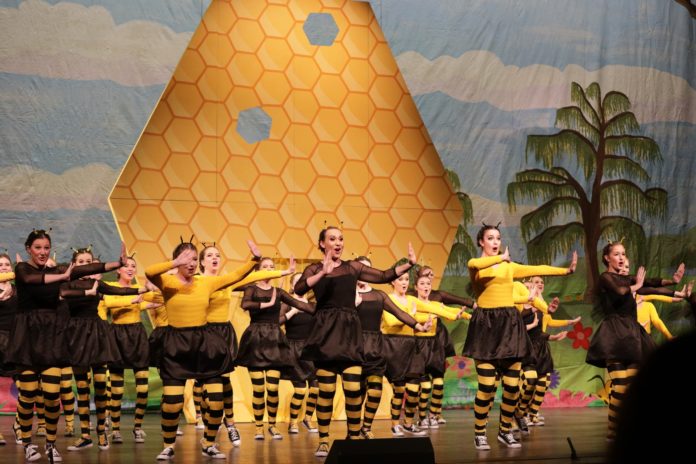
By Reagan Turner | Staff Writer
Every year, the competitors in Baylor’s annual All-University Sing competition debut bright, shiny new costumes. Delta Delta Delta’s brightly colored flower outfits and Phi Kappa Chi’s baseball tees and bunny ears from last year’s competition are just a couple of the creative wardrobe ideas participants come up with.
Though the performers’ outfits are a small part in the overall judging criteria, such as backdrops, props, special effects, and lighting design. However, costumes often make up a large part of the annual Sing budget for multiple organizations. Not only is the clothing expensive, but the accessories, makeup and hair products used by each act are additional expenses that easily rack up the total price tag of a Sing costume. These accessories, coupled with multiple design sessions and fittings can also take a financial toll on the men and women participating in the two-weekend-long competition.
According to Lubbock sophomore, Emily Osborne, who is a Chi Omega member participating in “You can’t stop the Bees”, the costumes themselves were bought by Chi Omega, where the funds come from their Sing budget so the performers do not pay for their costume. That includes shoes, the top, skirt, tights and headpiece if they are a bee. If they are a beekeeper, that includes shoes, a beekeeper suit and veil. The estimated cost is around $55 for both costumes. However, Osborne was required to pay for all of the required make-up, which approximately costed $45 for eye shadow, fake eye lashes, lip stick and face make-up but is shared among two girls per set of make up. The cost was billed to each member through Bill Highway.
However, sacrificing additional money in order to guarantee quality is worth it in the long run, according to Danville, Calif. junior Chloe French. She is a member of Kappa Alpha Theta whose theme is “Little Bo Peep”.
“I absolutely love our costumes,” French said. “I think that the wolves, sheep, and bo-peep costumes were definitely worth the money because they really tie the entire act together. It’s exciting to see how they look on stage with all of the lights and smoke.”
Beta Upsilon Chi (BYX) is a national fraternity with a focus on Christian community. Their performance last night was their first Sing appearance in four years. The official budget set by the fraternity for their participation in the competition was $4,500, an amount collected from the dues of their members. Costume costs were not included in this price tag, adding up to $90 per performer, though the men of BYX were only required to personally pay for their own shoes, as the rest was in the BYX budget. Dallas junior Corbin Smith, a BYX, talked about how the price of the men’s costumes seems relatively inexpensive until the total amount is put together.
“We only have 30 guys performing, but the costumes are still expensive. Think about thirty times $90—that still comes out to be quite a bit of money,” Smith said.
Despite the expenses to produce the act as a whole, Smith is excited for the opportunity to experience the crowd’s reaction during Sing as well as getting to sing and dance alongside his friends.
“The crowd getting into our act and singing along was really great during dress rehearsal, and just getting to perform with all of my brothers is going to be awesome.”
BYX dressed up as baseball players for the performance in accordance with their theme of “Better Up!”.





